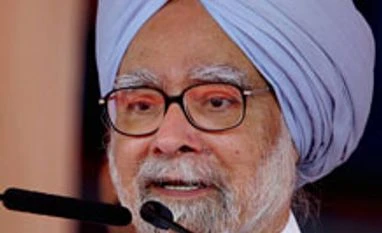Asserting cooperation in nuclear energy production would continue between the two countries, he also offered to Russia an additional site in West Bengal for location of a reactor in case the originally proposed site in Haripur was not found feasible. "Indian and Russian companies have been holding negotiations on finalising arrangements for Kudankulam Units 3 and 4 and I am confident these contracts would be finalised shortly," Singh told the Russian media ahead of his two-day visit to Moscow beginning on Sunday.
Hectic negotiations are on between the two sides on clinching a deal on the two new reactors in Kudankulam against the backdrop of the Russian concerns over the civil liability issues arising out of the nuclear liability law in India.
More From This Section
Russia is opposed to liability provisions claiming it has an inter-governmental agreement on Kudankulam preceding the law. India has suggested some parameters that would govern the liability issues and has asked General Insurance Corporation to work on an insurance policy that laying down guidelines of liability for suppliers equipment.
Officials are confident the deal would be signed between the companies of the two countries during the visit. Singh said India remained interested in expanding nuclear power production in cooperation with Russia and was committed to the full implementation of the Roadmap signed during the visit of President Putin to Indian in March, 2010.
"We have already designated Haripur in West Bengal as an additional site to Kudankulam for constructing nuclear power plants in cooperation with Russia...We have also assured our Russian friends that an alternative site would be allocated in case Haripur is not found feasible. I am confident that cooperation in nuclear energy production between our two countries will continue to deepen," the Prime Minister said.
There has been a rethink over Haripur after protests from villagers against setting up a nuclear power station there, which forced the West Government government to oppose it.
On economic ties, Singh said bilateral trade grew from $8.85 billion in 2011 to $11.04 billion in 2012, representing a growth of nearly 25 per cent. "If this pace is maintained, our trade could cross $20 billion dollars by 2015," he said adding while facing the challenge of a difficult global economic environment he was optimistic about the prospects of the bilateral trade and investment relations.
Singh said India encouraged more and more active business-to-business relations and to encourage mutual investments in areas such as chemicals, pharmaceuticals, automobiles, telecommunications and energy.
"The hydrocarbon sector is an area of priority. We are looking to enhancing our participation in the Russian oil and gas sector. We are examining the feasibility of a proposal for direct surface transportation of hydrocarbons from Russia to India. We have also proposed a Comprehensive Economic Cooperation Agreement between India and the Customs Union of Belarus, Kazakhstan and Russia, which we hope would be initiated soon," he said.
)